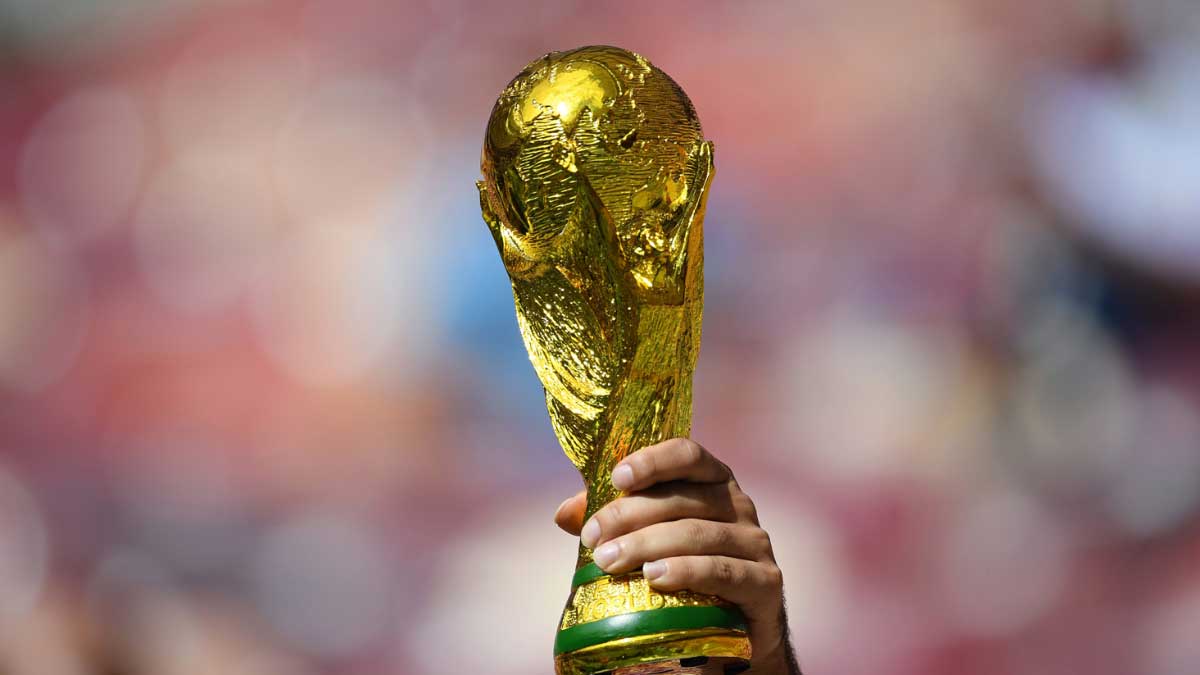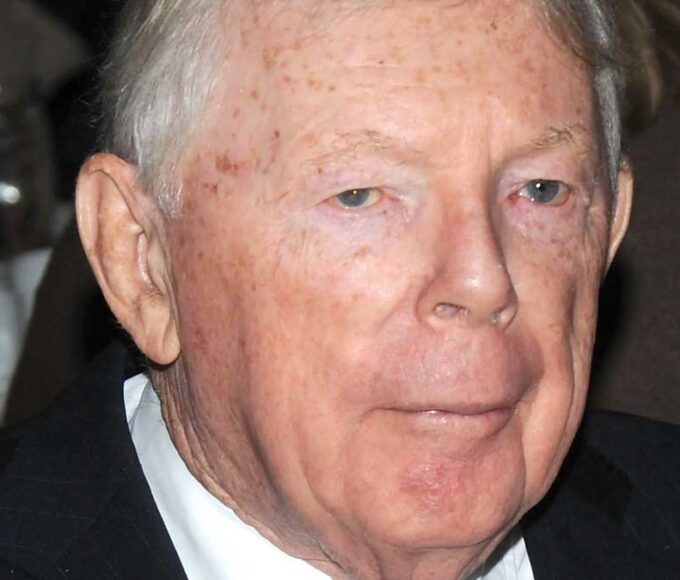- Home
- Billionaires
- Investing Newsletters
- 193CC 1000
- Article Layout 2
- Article Layout 3
- Article Layout 4
- Article Layout 5
- Article Layout 6
- Article Layout 7
- Article Layout 8
- Article Layout 9
- Article Layout 10
- Article Layout 11
- Article Layout 12
- Article Layout 13
- Article Layout 14
- Article Sidebar
- Post Format
- pages
- Archive Layouts
- Post Gallery
- Post Video Background
- Post Review
- Sponsored Post
- Leadership
- Business
- Money
- Small Business
- Innovation
- Shop
Recent Posts
Saudi Arabia Named 2034 World Cup Host Amid Controversy

On Wednesday, Saudi Arabia was officially confirmed as the host of the 2034 FIFA World Cup, a decision that, while anticipated, has stirred significant controversy and ignited global debate. The announcement marks the beginning of what is expected to be a decade of intense scrutiny regarding the country’s human rights record, particularly in light of the migrant labor abuses that plagued Qatar’s 2022 World Cup preparations. As the world shifts its focus to Saudi Arabia, questions surrounding the kingdom’s treatment of workers and its broader human rights practices have sparked widespread concern.
The announcement came during a special FIFA congress in Zurich, where the international governing body also confirmed the co-hosts for the 2030 World Cup—Spain, Portugal, and Morocco—with additional matches to be played in Argentina, Paraguay, and Uruguay. This marks the first time in history the World Cup will be hosted across multiple continents, a decision that surprised many. FIFA President Gianni Infantino justified the move, claiming it sends a message of “peace, tolerance, and inclusion,” despite climate groups and critics arguing against the logistics and environmental implications of traveling thousands of miles between games.
In contrast, the 2034 World Cup decision was less surprising. Saudi Arabia was the only country to submit a competitive bid, with no other contenders vying for the prestigious tournament. This has raised suspicions that the decision was less about sporting merit and more about the kingdom’s ongoing efforts to modernize and reshape its global image, often referred to as “sportswashing.” By hosting such a major event, Saudi Arabia hopes to project a more progressive and forward-thinking image, distancing itself from its long history of human rights violations.
The Saudi bid plans to host all 104 World Cup matches in 15 stadiums, eight of which are yet to be built, spread across five cities—Jeddah, Abha, Al Khobar, Neom, and a 92,000-seat venue planned for Riyadh. Despite the ambitious nature of these plans, critics have raised concerns about the process behind the bid, particularly its swift approval by FIFA. The bid’s approval came under scrutiny, with many questioning whether the process was transparent and whether it was influenced by the financial clout of the Saudi government, which has invested heavily in global sports in recent years.
Critics argue that this bid is part of a broader strategy by the Saudi government to use sports to divert attention away from its human rights record. They point to the kingdom’s growing investments in international sports, including its controversial $6 billion spending spree between 2021 and 2023 on deals involving golf, tennis, and Formula 1. This has led many to believe that Saudi Arabia’s sports investments are part of a calculated effort to “sportswash” its reputation—distracting from its track record on issues such as labor rights, gender inequality, and LGBTQ+ rights.
One of the most significant concerns raised about Saudi Arabia’s World Cup bid is the treatment of migrant workers who will be tasked with building the massive infrastructure required to host the tournament. Human Rights Watch has called on FIFA to reject Saudi Arabia’s bid, warning that the country has not made sufficient commitments to protect the migrant laborers involved in construction projects. The organization pointed out that Saudi Arabia has a history of labor abuses, particularly in the construction industry, and raised the alarm that the 2034 World Cup could exacerbate these issues. This concern comes in the wake of Qatar’s 2022 World Cup, where at least 400 migrant workers died as a result of unsafe working conditions, an issue that has cast a shadow over the tournament.
The speed at which Saudi Arabia’s bid was confirmed has also raised eyebrows. In October 2023, the only other country that had shown interest in bidding for the 2034 World Cup, Australia, announced it would not submit a bid. This left Saudi Arabia as the clear frontrunner. However, the bidding process was criticized for being rushed, with FIFA opening the bidding with little warning and giving countries only 25 days to prepare their bids. Reports suggested that Saudi Arabia had a bid prepared in advance, giving it a significant advantage over other potential bidders, further fueling accusations of unfairness in the selection process.
As the Saudi World Cup bid moves forward, several countries have voiced their opposition to the decision. Norway, in particular, has been outspoken, with the Norwegian Football Federation President Lise Klaveness condemning the process as inconsistent with the principles of “sound and predictable governance.” The decision to host the 2034 World Cup in Saudi Arabia has sparked debate over whether FIFA is prioritizing the financial benefits of the tournament over human rights concerns.
Another point of contention is Saudi Arabia’s dismal record on gender equality and LGBTQ+ rights. According to the World Economic Forum’s 2023 Global Gender Gap Report, Saudi Arabia ranks 131st out of 147 countries, showing little improvement in bridging the divide between men and women in terms of education and employment. Moreover, Saudi Arabia does not recognize LGBTQ+ rights, and homosexuality remains punishable by imprisonment, flogging, or even death. These human rights issues raise doubts about the country’s commitment to creating an inclusive and welcoming atmosphere for international fans, players, and journalists.
Despite these challenges, Saudi Arabia remains undeterred. The country has expressed confidence that its World Cup bid will be met with widespread support from its citizens. A statement from the Saudi bid team emphasized the excitement and national pride that the World Cup will generate, claiming that fans across the kingdom will celebrate “this historic moment” when the decision is formally confirmed.
While the decision to award Saudi Arabia the 2034 World Cup may have been expected, the controversy surrounding it is far from over. The next decade will likely see heightened attention to the country’s human rights record, its treatment of migrant workers, and its efforts to reshape its global image through sports. As the tournament approaches, all eyes will be on Saudi Arabia, with the world waiting to see whether the kingdom can address its critics and deliver a World Cup that lives up to FIFA’s standards of fairness and inclusivity.
Recent Posts
Categories
- 193 Countries Consortium Partner1
- 193cc Digital Assets2
- 5G1
- Aerospace & Defense48
- AI37
- Arts3
- Banking & Insurance11
- Big Data3
- Billionaires1,467
- Boats & Planes1
- Business332
- Careers13
- Cars & Bikes79
- CEO Network1
- CFO Network17
- CHRO Network1
- CIO Network1
- Cloud10
- CMO Network18
- Commercial Real Estate7
- Consultant1
- Consumer Tech194
- CxO1
- Cybersecurity73
- Dining1
- Diversity, Equity & Inclusion4
- Education7
- Energy8
- Enterprise Tech29
- Events11
- Fintech1
- Food & Drink2
- Franchises1
- Freelance1
- Future Of Work2
- Games149
- GIG1
- Healthcare79
- Hollywood & Entertainment203
- Houses1
- India’s 1000 Richest1
- Innovation46
- Investing2
- Investing Newsletters4
- Leadership65
- Lifestyle11
- Manufacturing1
- Markets20
- Media327
- Mobile phone1
- Money13
- Personal Finance2
- Policy569
- Real Estate1
- Research6
- Retail1
- Retirement1
- Small Business1
- SportsMoney42
- Style & Beauty1
- Success Income1
- Taxes2
- Travel10
- Uncategorized14
- Vices1
- Watches & Jewelry2
- world's billionaires1,436
- Worlds Richest Self-Made Women2
Related Articles
HBO and Cablevision Founder Charles Dolan Dies at 98
Charles Dolan, the visionary founder of HBO and Cablevision, passed away at...
By 193cc Agency CouncilDecember 30, 2024Bitcoin Reaches $100K, But Altcoins Outperform in 2024
Bitcoin’s performance in 2024 was nothing short of historic, as it crossed...
By 193cc Agency CouncilDecember 28, 2024Apple Unveils Limited-Edition Year of the Snake AirTag in Japan
In an announcement that will likely leave Apple enthusiasts excited but also...
By 193cc Agency CouncilDecember 27, 2024Mega Millions Jackpot Hits $1.15B; Winner Faces Major Taxes
The Mega Millions jackpot has soared to an estimated $1.15 billion, following...
By 193cc Agency CouncilDecember 26, 2024















Leave a comment